|
Going far away for a vacation is unlikely at this moment, but for city-dwellers, even going to a cottage is a big ethical question this year. For people who live in cottage and cabin country, it's an unwieldy choice between the usual tourist season or putting stress on fragile rural health systems. Today in The Conversation Canada, Ashleigh Weeden of the University of Guelph takes a look at the complicated tensions in cottage country and who has the right to be rural.
We also have two great reads on the growing misinformation problem surrounding the coronavirus pandemic, including strange and dangerous conspiracy theories that cell towers have something to do with COVID-19.
Also today:
Regards,
|
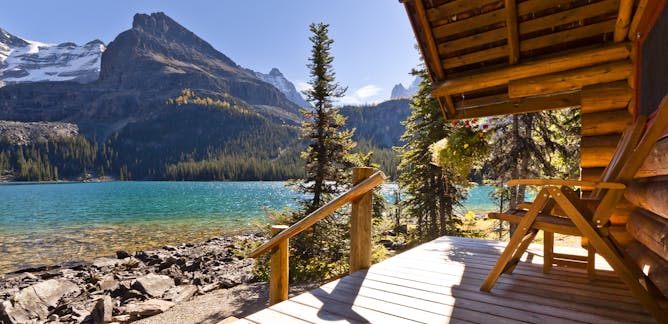
The view from the porch of a cabin in Yoho National Park in British Columbia.
(Shutterstock)
S. Ashleigh Weeden, University of Guelph
Conflicts between seasonal property owners and year-round rural residents are highlighting the fault-lines between the "right to be rural" and "disaster gentrification."
|
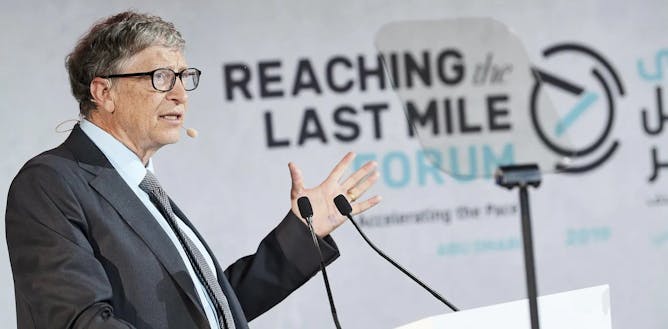
Microsoft co-founder and philanthropist Bill Gates has been one of the targets of misinformation during the pandemic and was falsely accused of helping spread the COVID-19 virus to sell a vaccine.
(Reaching the Last Mile Forum via AP Images)
Nadia Naffi, Université Laval; Ann-Louise Davidson, Concordia University; Houda Jawhar, Concordia University
The World Health Organization says the abundance of misinformation swirling around COVID-19 is as dangerous as the virus itself. There are ways to fight this, however.
|
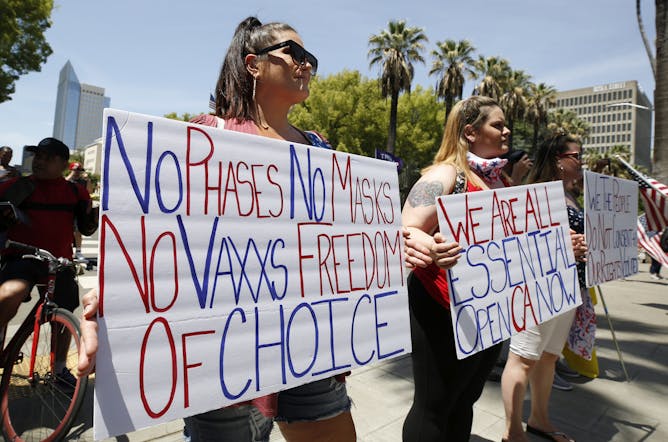
Shannon Rose, left, joined other demonstrators calling for Gov. Gavin Newsom to end the stay-at-home orders during a protest at the state capitol in Sacramento, Calif., on May 9, 2020.
(AP Photo/Rich Pedroncelli)
Jeremy Cohen, McMaster University
From political ideologies, conspiracy theories or “reopen” protests, when faced with uncertainty, we seek reassurance in the face of mortality through efforts at containment.
|
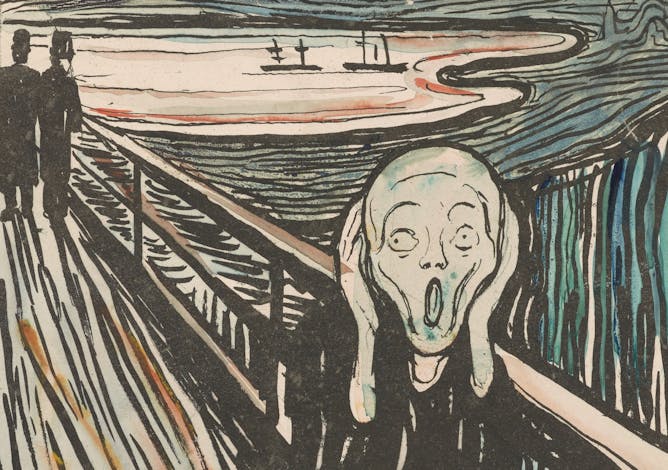
‘The Scream,’ by Edvard Munch, hand-coloured lithograph version from 1895.
(Munchmuseet)
Allison Morehead, Queen's University, Ontario
Artist Edvard Munch depicted despair provoked by disease in turn-of-the-century works. In these coronavirus times, his iconic image speaks to our anxieties about illness and societal collapse.
|

A brisk 30-minute walk three times a week is enough to prevent stress-induced depression.
(Shutterstock)
Jennifer J. Heisz, McMaster University; Maryam Marashi, McMaster University
Physical activity can help people manage the stress of COVID-19, but closures and distancing have made it even harder to exercise. These researchers are developing a free toolkit to help us all cope.
|
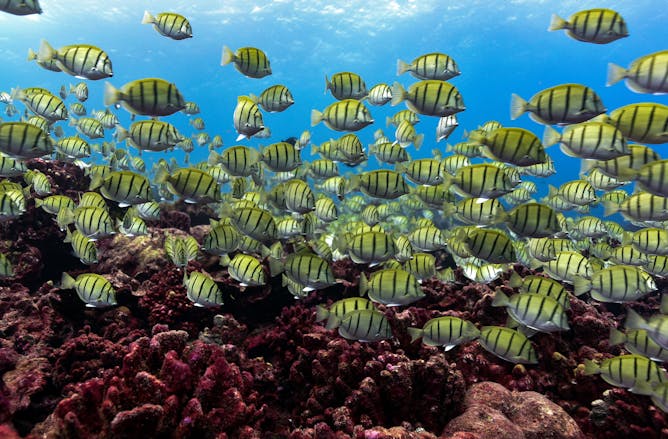
A school of convict tang (Acanthurus triostegus) swim on Kiritimati’s dead reefs after the 2015–16 marine heatwave.
(Kevin Bruce)
Jennifer M.T. Magel, University of Victoria; Julia K. Baum, University of Victoria
Reef fish vanish during marine heatwaves, but may bounce back quickly on reefs that have few other environmental stressors.
|
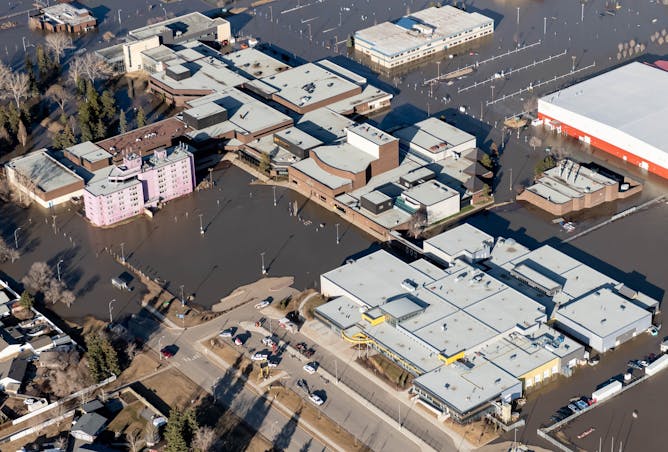
Flood waters surround Keyano College and Fort McMurray Composite High School in late April 2020.
THE CANADIAN PRESS/Greg Halinda
Eva A. (Evalyna) Bogdan, University of Waterloo; Daniel Henstra, University of Waterloo; Jason Thistlethwaite, University of Waterloo
Blaming flooding on an act of God wrongly absolves government and developers of their liability for poor decisions that unfairly burden taxpayers.
|
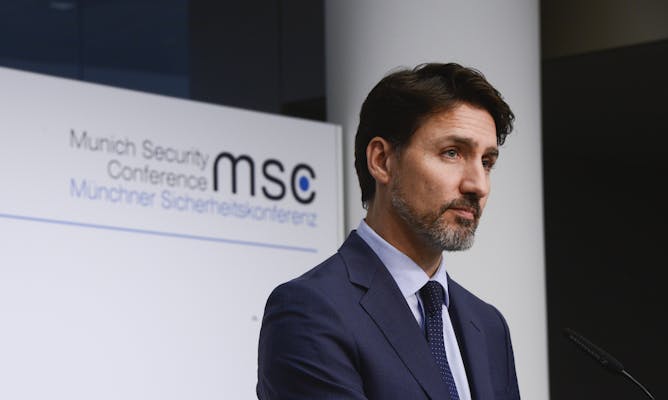
Le Premier ministre Justin Trudeau tient une conférence de presse de clôture à la suite de la Conférence de Munich sur la sécurité, le 14 février. Il tentait d'y obtenir des appuis en vue de la candidature du Canada au Conseil de sécurité des Nations unies. Obtenir ce siège ne sera pas chose facile.
La Presse Canadienne/Sean Kilpatrick
Jean-François Thibault, Université de Moncton
Malgré les efforts de dernière minute de Justin Trudeau, le Canada pourrait subir un deuxième échec consécutif – et le troisième de son histoire – dans l’obtention d’un siège au Conseil de sécurité.
|